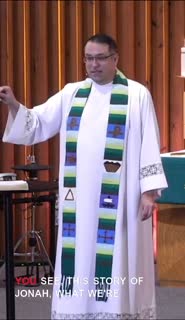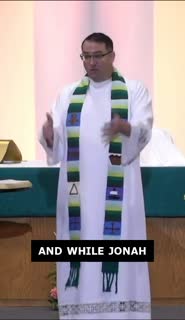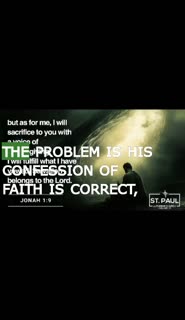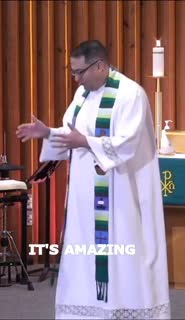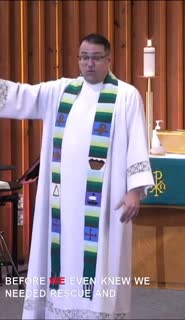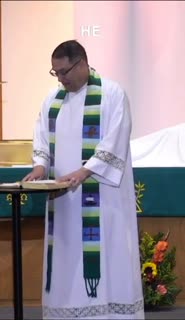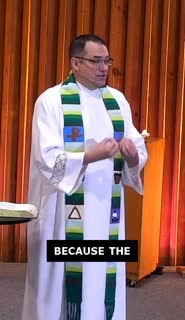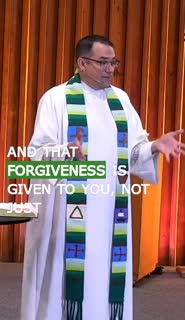Relentless Grace: Jonah's Journey and Our Response
Devotional
Sermon Summary
Bible Study Guide
Sermon Clips
"You see, this story of Jonah, what we're going to see over and over again, that there's this thought sometimes that we've got to change our lives. We've got to get our lives in order to receive God's grace. And if there was ever a story that shows us just how false that belief is, it's the story of Jonah." [00:06:40] (18 seconds)
"There's a confidence that Jonah has, even as he begins his prayer, that even though he's rebelled against God, God is going to hear his prayer even here, even now. Do we have that confidence too, that God hears our prayers?" [00:08:12] (15 seconds)
"And while Jonah may have it memorized in his head, as we hear his prayer, which mentions himself twice as much as it mentions the Lord God, you see a reflection of Jonah's faith and belief. You see, he's got the head knowledge. He knows who God is, but there's a disconnect to his heart, a disconnect to that saving grace that God desires all people to be saved, even Jonah." [00:11:35] (31 seconds)
"The problem is his confession of faith is correct, but his confession of sins is missing. It's missing. In fact, as we read through the whole story of Jonah, never once will he confess his sins to the God who is faithful and just to forgive sins." [00:12:54] (21 seconds)
"That's why Jonah doesn't want to go to Nineveh. He's not scared of the Ninevites. He's scared that God's going to give them what they don't deserve, forgiveness and mercy, and those people don't deserve it. And Jonah's attitude and belief that those people don't deserve it show us right here in the belly of the fish that Jonah doesn't believe he deserves it either." [00:14:42] (20 seconds)
"It's amazing because God doesn't set any conditions to Jonah. He doesn't say, Jonah, I'm going to let you out of the fish, but here's what you've got to do. First, you've got to get your life in order. Second, you've got to confess your sin. Third, you've got to go to Nineveh. Fourth, you've got to make amends to the people that you've hurt and the shipmen. You better follow up with them because they believe in me, so you've got to give them. He doesn't say, there's no list, there's no condition, there's no kind of rules and order that God puts in there. He just continues to show his grace." [00:16:04] (27 seconds)
"Before we even knew we needed rescue and deliverance, Christ allows himself to be crucified for us and for the sins of the world, and that he will be buried in a tomb for three days, and he will come out of that tomb vomited out by death because death will be defeated. Sin will be taken care of. Satan will be conquered, not just for Christ, but for you and for me, me giving us that promise that this is for us, that we are forgiven." [00:16:57] (30 seconds)
"He keeps his focus on the mission to save you and to me, to give us forgiveness even though we don't deserve it, and a prayer that we would continue to be about the family business, the family business which is bringing forgiveness of sins, grace, and mercy to people who don't deserve it. That as the body of Christ, we're not in the business of canceling people. We're in the business of delivering the cancellation of sins and through the forgiveness that Christ has first given to us." [00:23:38] (30 seconds)
"Because the truth of the matter is, the forgiveness of sins is always, always for those who don't deserve it, even you and me." [00:25:31] (9 seconds)
"And that forgiveness is given to you, not just simply for yourself to be sitting on the sideline, but for you to be able to go into the world that is filled with darkness, to bring the light of Christ, to bring that forgiveness to other people in your life who don't deserve it as well, but who desperately, desperately need it." [00:26:53] (21 seconds)
